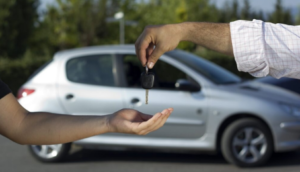The Realities of Buying Used Cars vs is a major financial decision, and one of the biggest choices you’ll face is whether to buy a brand-new car or a used one. While a new car offers the latest features and warranties, a used car often provides better value for money. But what are the real pros and cons of buying used cars compared to brand-new ones? This guide explores the realities of purchasing a second-hand vehicle, including cost considerations, depreciation, maintenance, financing, and reliability, to help you make an informed decision.
Why Buying a Used Car Is Often More Practical

1. Cost Savings
One of the most compelling reasons to buy a used car is affordability. New cars depreciate quickly, often losing up to 20-30% of their value in the first year alone. By purchasing a car that is a few years old, you can avoid the steepest depreciation and get more value for your money.
2. Slower Depreciation
- A new car starts depreciating the moment you drive it off the lot.
- Used cars, particularly those that are 3-5 years old, have already undergone the steepest depreciation and will hold their value better over time.
- This means you can sell a used car in the future with less financial loss compared to a new one.
3. Lower Insurance Costs
- Insurance premiums for used cars are generally lower than for new ones.
- Since insurance costs are based on the car’s value, a lower-priced used vehicle means reduced monthly premiums.
- Some older cars may not require comprehensive or collision coverage, further reducing insurance costs.
4. Reduced Registration Fees
- Many states charge registration fees based on the car’s age and value.
- A used car typically has lower registration fees than a new one, saving you money annually.
The Potential Downsides of Buying a Used Car
1. Risk of Hidden Mechanical Issues
- Used cars may come with wear and tear that could lead to unexpected repairs.
- To mitigate this risk, buyers should:
- Obtain a vehicle history report.
- Have a trusted mechanic inspect the car before purchase.
- Check for manufacturer recalls and maintenance history.
2. Limited or No Warranty Coverage
- Unlike new cars, which come with manufacturer warranties, used cars may have limited or no coverage.
- Some dealers offer certified pre-owned (CPO) vehicles with extended warranties, providing more peace of mind.
3. Older Features and Technology
- Used cars might lack the latest safety features, infotainment systems, and fuel efficiency advancements.
- Buyers should weigh whether modern tech like adaptive cruise control, lane-keeping assist, and touchscreen infotainment is a priority.
4. Fewer Financing Options
- Interest rates for used car loans are typically higher than those for new cars.
- New car promotions often include lower interest rates or special financing deals.
- However, buyers with good credit can still find competitive loan options for used vehicles.
Why Some People Still Prefer Brand-New Cars
1. Full Manufacturer Warranty
- New cars come with comprehensive warranties covering repairs and defects for several years.
- Some brands offer extended warranties or free maintenance for the first few years.
2. Latest Safety and Technology Features
New vehicles come with cutting-edge safety features such as:
- Automatic emergency braking (AEB)
- Blind-spot monitoring
- Advanced driver-assistance systems (ADAS)
They also offer modern infotainment systems with smartphone integration, larger touchscreens, and enhanced connectivity.
3. Peace of Mind and Reliability
- Since new cars haven’t been driven by anyone else, they have no prior mechanical issues or wear and tear.
- Buyers don’t need to worry about unknown accident history or poor maintenance.
4. Customization Options
- Buyers can select the exact model, trim, and features they want instead of settling for what’s available in the used market.
Making the Right Choice: Used vs. New Car – What’s Best for You?
| Factor | Used Car | Brand-New Car |
|---|---|---|
| Price | Lower cost | Higher cost |
| Depreciation | Slower depreciation | Rapid depreciation in the first few years |
| Insurance | Lower premiums | Higher premiums |
| Maintenance | May require repairs sooner | Covered by warranty |
| Technology | May have older features | Latest advancements |
| Financing | Higher interest rates | Special promotions available |
Tips for Buying a Used Car Safely
- Set a Budget: Determine your spending limit, including potential repair costs.
- Research the Vehicle’s History: Use services like CARFAX or Auto Check.
- Inspect the Car Thoroughly: Have a mechanic assess its condition.
- Test Drive: Ensure the car runs smoothly and suits your needs.
- Negotiate the Price: Don’t accept the sticker price there’s always room for negotiation.
- Review the Paperwork Carefully: Confirm the title is clean and there are no outstanding loans.
Conclusion
While brand-new cars offer the latest features, warranties, and peace of mind, used cars provide significant cost savings, slower depreciation, and lower insurance rates. Ultimately, the right choice depends on your budget, lifestyle, and priorities. If you’re looking for affordability and value, a well-researched used car can be a smart investment. However, if you prioritize cutting-edge technology and hassle-free ownership, a new car may be worth the extra expense. No matter what you choose, thorough research and careful consideration will ensure you get the best deal for your money.

